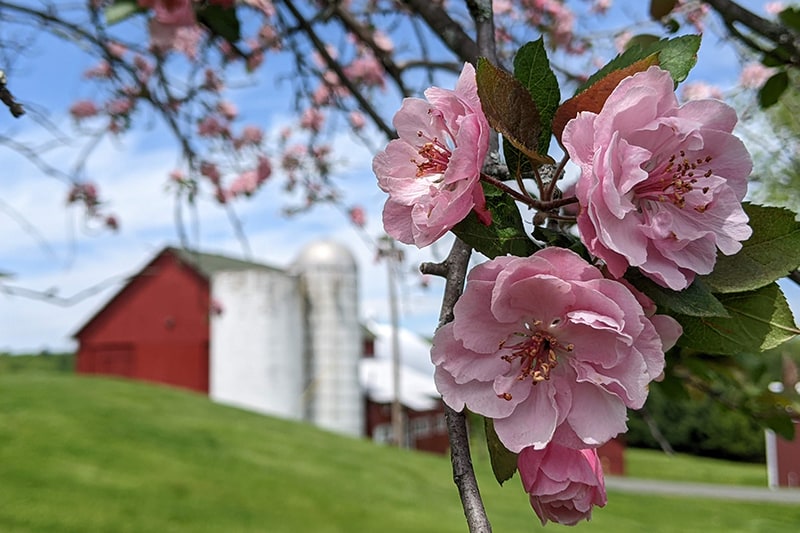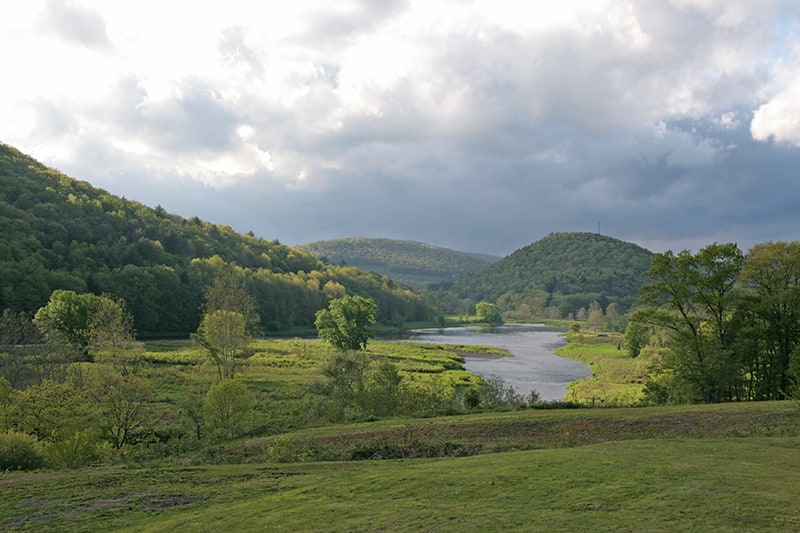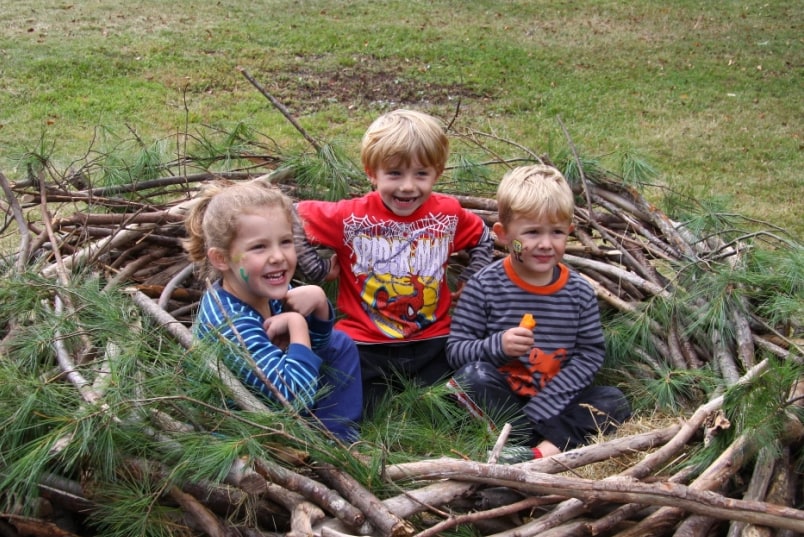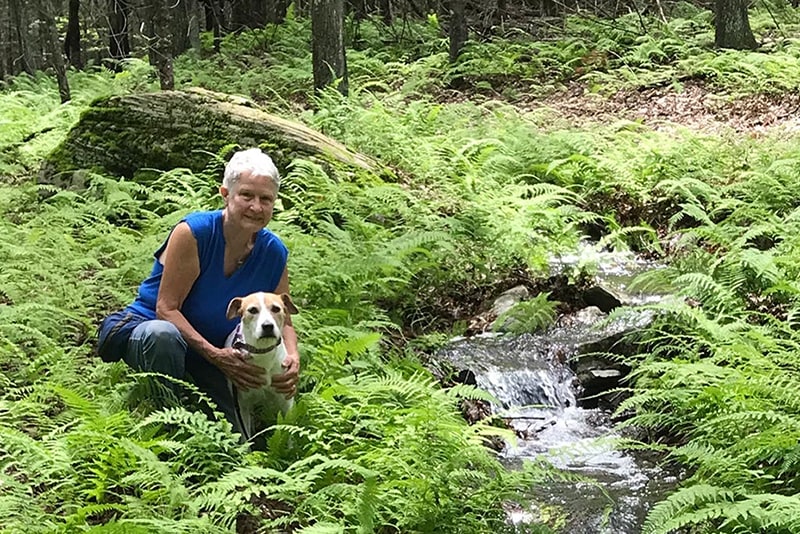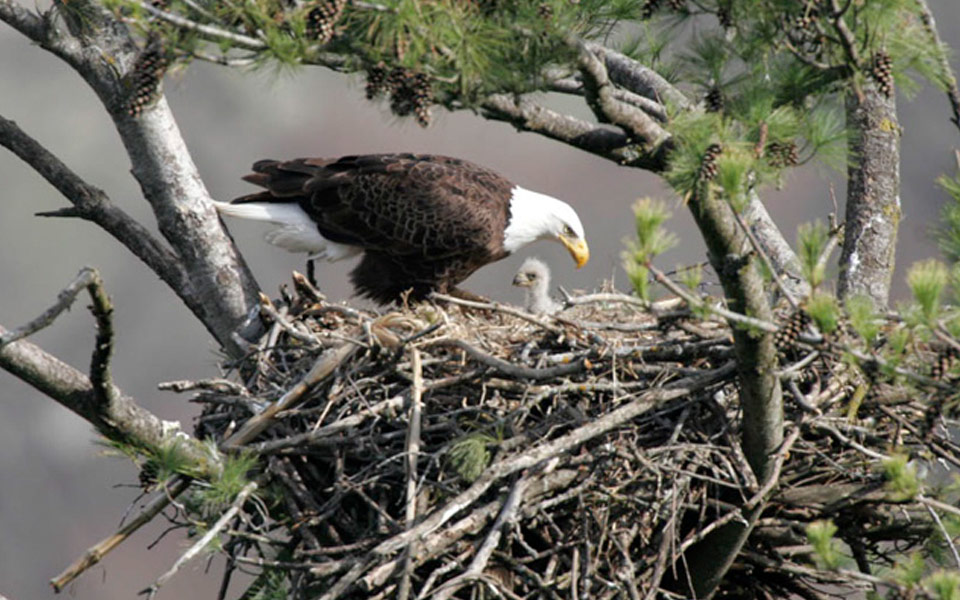Inspired by Native American Beliefs
They’d watched as farms shut down, open land disappeared, and development threatened to take away the open views they’d so enjoyed for 37 years. Raised in Western New York State between two of the biggest Native American reservations in the East, Alice had learned to raise vegetables and chickens on her grandmother’s farm as a child. Her father had taught her to help clear timber and “farm” the 150 acres of woods he so carefully tended there.
After marrying and living in Long Island for a few years while finishing their education, Bill and Alice decided to move their growing family back “Upstate” to raise them in a rural setting, located just a mile and a half from the original Woodstock site. Their five daughters loved growing up in the country gardening, riding their own horses, keeping a few head of cattle, and camping in the woods. “It was so good to just have them out there, where they could be kids,” smiles Alice. Her daughters have continued to come back with their families to enjoy the open land, woods, and pond where many birds and wild animals gather.
Because of their reverence for the environment, their enjoyment of their hilltop farm, and the desire to preserve that land for their family, Alice and Bill decided to protect their farm. Hearing about the Delaware Highlands Conservancy from a neighbor, they started the process of placing their land into an easement that prevents any subdivision, development, or further building on their land, except for an animal shelter or replacement buildings for the existing house, barn, and shed.
Bill became very ill, but the Froelichs moved forward with their plans, with the full support of their children. Though Bill passed away just days before the easement was to be signed, Alice went ahead and put it in place before the end of 2006. Their 23 acres of high, rolling farmland will be protected from subdivision or development forever, whether it remains in their own family or is sold. It can be used for any type of noncommercial farming activities, but best of all, it can be enjoyed by the future generations of their family as it has been enjoyed by them, their children and grandchildren for the past 37 years.
Recalling the words of one of her Native American coworkers in Western New York who voiced the belief of her People that “Unto the seventh generation you had to take care of the land and the forest and the animals,” Alice asserts, “It’s a good philosophy, and we’ve unfortunately lost that. We look to our own interests and sometimes don’t even think of our children’s interests as far as conservation goes.”
Alice Froelich has thought of her children’s interests, as well as those of the planet, by permanently protecting her farmland. In doing so, she is carrying on the conservationist beliefs of her own family and the sacred tradition of her Native American neighbors.

